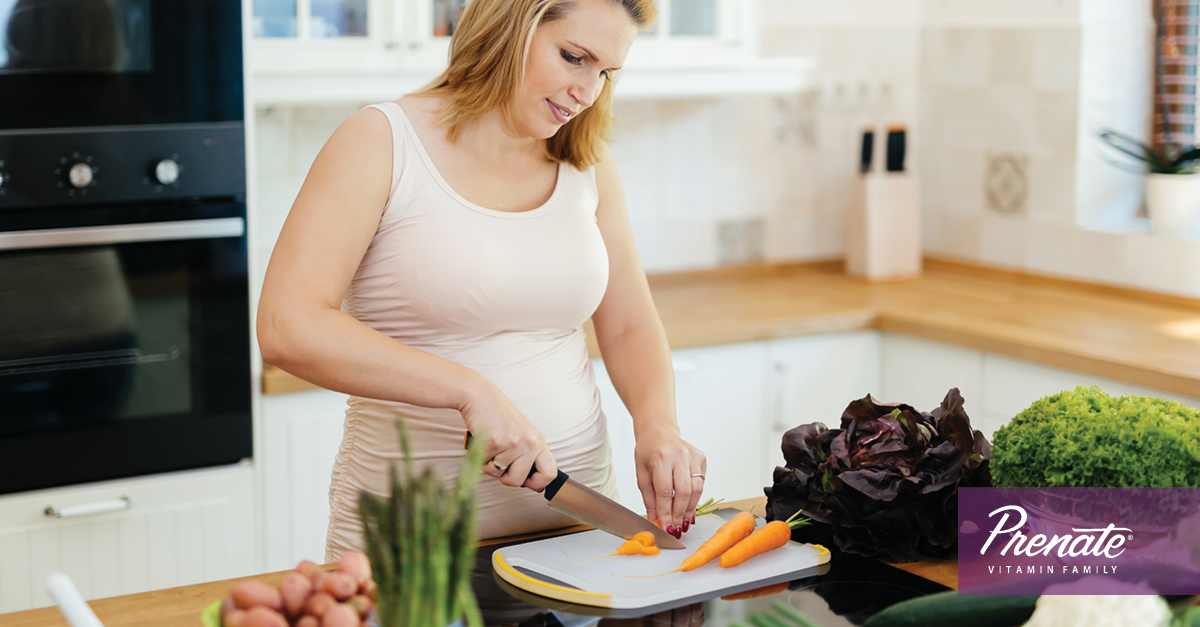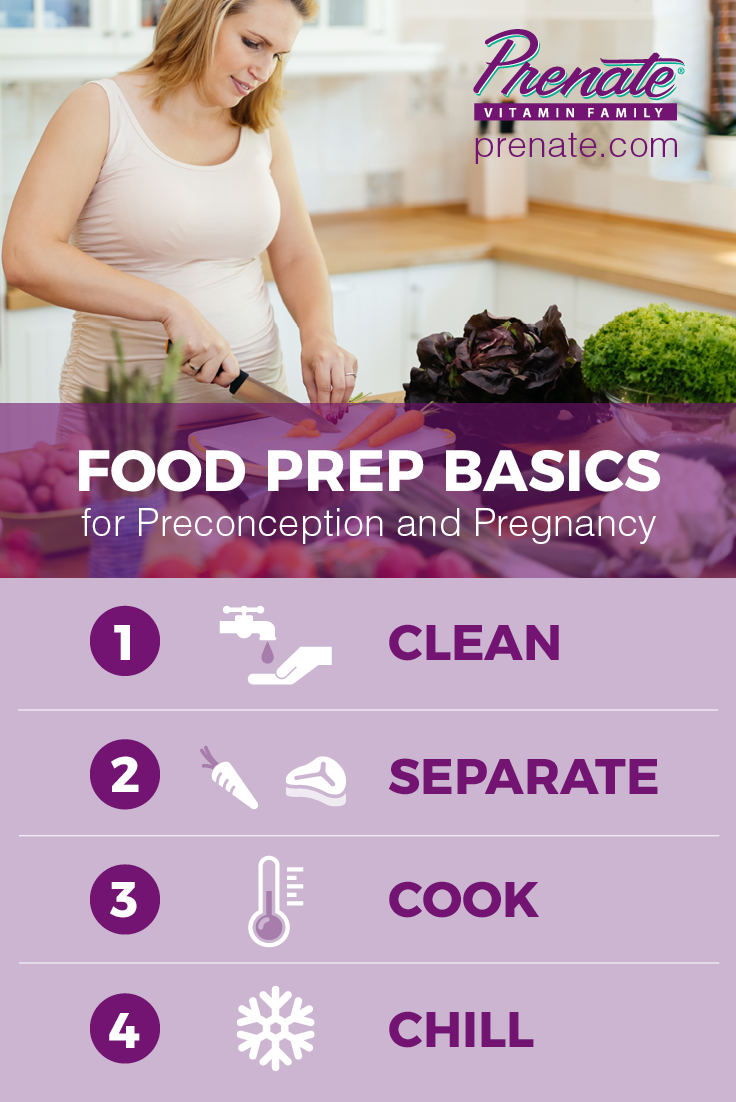Food Prep Basics for Preconceptions and Pregnancy
November 6, 2016
When women become pregnant, and even before pregnancy, they are susceptible to food-borne illnesses. The immune systems of pregnant women in particular are weakened from the rapid changes occurring in their bodies.
Food-borne illnesses are caused by eating food or drinking liquids that contain harmful contaminants or microorganisms such as bacteria, parasites and viruses. Typical symptoms of a food-borne illness include nausea, vomiting, fever, headaches, body aches and diarrhea. In some cases, mothers may not have symptoms of an illness but may still pass it to their babies.
Any illness that impacts a mother may also impact a developing baby. Because of this, women need to take extra care when it comes to food preparation. Following best food- preparation practices as early as possible, even before pregnancy, will help build healthy habits. The tips listed here can help limit exposure to food-borne illness before conception and during pregnancy.
Clean
Be sure to triple rinse all fruits and vegetables under running water. It’s important to keep cutting boards, dishes, utensils and countertops clean before and after food preparation. It’s also important to wash your hands before and after handling food. To limit exposure to microorganisms and contaminants, wash your hands before and after going the bathroom, changing diapers or handling pets. When cleaning hands or items used to prepare food, use warm water and soap.
Separate
Keeping foods separate is another way to limit exposure to food-borne illnesses. For example, raw meats, poultry and seafood should be stored away from ready-to-eat foods such as fruit and vegetables. When preparing meals, be mindful of surfaces that raw meat touches. Raw meats should be cut or sliced on a cutting board designated for meats, while fruit and vegetables should be cut on a separate cutting board. Similarly, never put cooked meat on a plate that previously held raw meat.
Cook
Before and during pregnancy is not the time to shrug off the importance of thoroughly cooking meat to the proper temperature. Food should be cooked thoroughly. If you don’t have a good-quality food thermometer, now is the time to buy one. All meats should be cooked to at least 140 degrees Fahrenheit. Certain meats need to be cooked to higher temperatures. Click here for a chart from the U.S. Food and Drug Administration on cooking temperatures for meats.
Chill
Keep your refrigerator set at 40 degrees Fahrenheit and your freezer at zero degrees Fahrenheit. Many newer refrigerators have built-in thermostats and temperature displays. If your unit does not have this feature, get an appliance thermometer and check the temperature periodically. Cooked or refrigerated foods that are left out for more than two hours should be discarded. Bacteria can start to grow on these types of foods after long periods of exposure to room temperatures.
Support for Prenatal Nutrition
Following these tips can limit exposure to food-borne illness for both mothers and babies. Food safety and good nutrition go hand-in-hand as best practices for prenatal care. However, good nutrition can be a struggle for many women, especially those who are unable to meet the recommended levels of vitamins and minerals from diet alone.
Prenate® Vitamin Family offers a line of prenatal vitamin supplements to help fill nutritional gaps. Designed with the needs of both mother and baby in mind, Prenate® has options for each step of pregnancy and the specific needs of moms-to-be. You can download our prenatal vitamin coupons and pay only $10 per fill.* Talk to your doctor to see if Prenate® is right for you.
You Are About To Leave This Website
By clicking continue, this link will take you to a website to which Alora Pharmaceuticals Policies & Terms of Use do not apply. Alora and its subsidiaries do not control the content or accuracy of third-party websites and assume no responsibility for their use.













